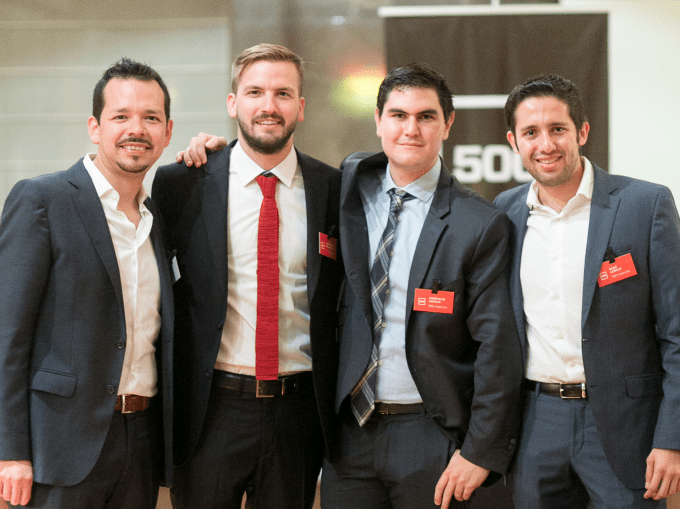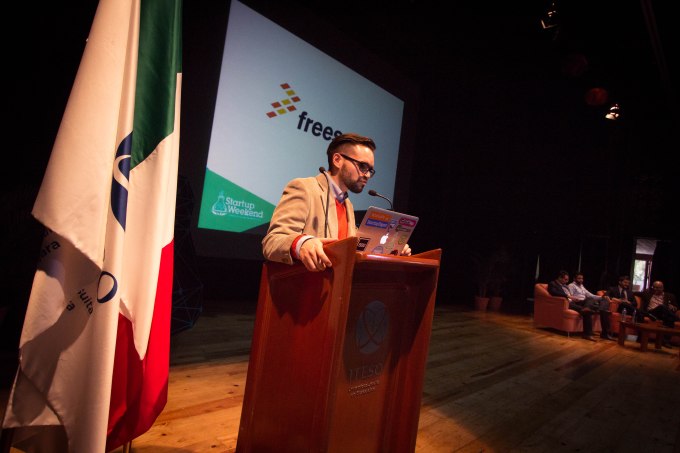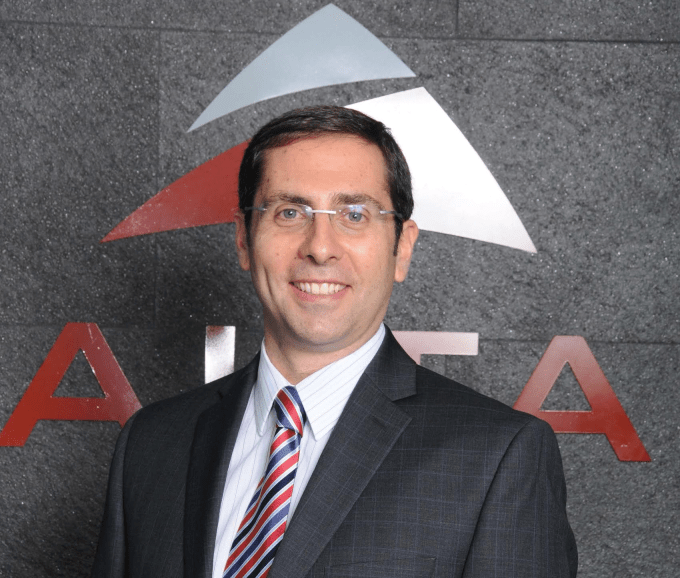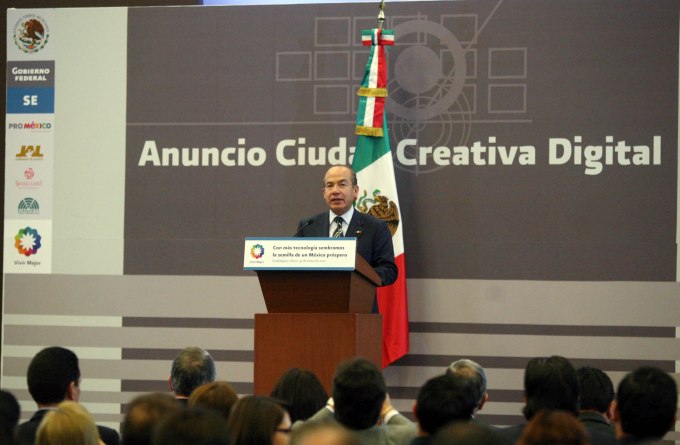It doesn’t take an advanced finance degree to understand why Mexico is projected–by Goldman Sachs, among others–to represent the world’s fifth largest economy by 2050.
The most populous Spanish-speaking country in the world, Mexico has booming ports on both oceans, abundant natural resources, a longstanding, well-developed industrial sector, close business ties to the United States, and easy access to the burgeoning US Latino population (with their soon-to-be $1.5 trillion in buying power).
But one thing that tends to get lost in this predictive calculus is that, even after just a few years of gestation, Mexico already boasts one of the more dynamic startup scenes in Latin America.
If Mexico is indeed moving beyond the maquiladora manufacturers and their free trade zones in the process of building the world’s next great economy, technology and innovation will be a part of the foundation of that economy.
Startup Origin Story
In 2006, some 50 individuals were selected by TechBA, an international business development program birthed out of the North American Free Trade Agreement (NAFTA), to make the 2,000-mile trip from Mexico to Silicon Valley and learn about startup entrepreneurship at its global proving grounds.
The result of this early cultural interchange was the Super Happy Dev House movement in Mexico City, which, despite the silly name, helped lay the groundwork for almost a decade of precipitous domestic growth in Mexico.
Following 2008’s Mexico Web 2.0 conference and the emergence of the new “Tequila Valley” movement, two of the first TechBA participants, Santiago Zavala and Cesar Salazar, who started the Super Happy Dev House, partnered with Silicon Valley entrepreneur David Weekly to found the Mexican.VC accelerator. It was an early attempt to address the nascent startup scene’s lack of funding.
Mexican.VC was eventually acquired by 500 Startups in 2012, and remains a fixture in country’s startup scene to this day. In the meantime, the fund played an important role, alongside the venture capital firm Alta Ventures in financing Mexico’s first batch of serious startups.

From left to right: 500 Startups Partners Cesar Salazar, Juan Lopez Salaberry, Santiago Zavala, and Operations Director Rene Lomeli
Venture capital didn’t reach a meaningful threshold in Mexico until 2009, when the Mexican Association of Venture Capital and Private Equity (MEXCAP) held its first conference in Mexico City. Soon after, Hernan Fernandez, widely considered the most influential angel investor in Mexico, founded Angel Ventures, which established a network not just of angel investors but also traditional businessmen willing to contribute capital to innovation projects as limited partners.
The creation of the independent government policy center, the National Institute of Entrepreneurship (INADEM), in 2013, signaled the emergence of a self-sustaining–if still evolving–startup ecosystem.
Mexico City: The Capital
With over 22 million people and counting, Mexico City is one of the largest cities, not simply in Mexico, but the entire world. It’s a global financial center, cosmopolitan cultural mecca, and an important political capital. That it is also the focal point of Mexican entrepreneurship is only to be expected.
For Cesar Salazar, the city’s dominance extends beyond even Mexico’s expansive national territory. “Mexico City is by far the most active and rapidly growing startup hub in the Spanish-speaking world,” the 500 Startups partner told me.
Salazar oversees investments in over 25 companies that have raised over $200K in funding or that have revenues in the hundreds of thousands, and he estimates that nationally, 100 or more startups have emerged to meet this standard in the past four years alone. While the Mexican government did not respond to requests for exact national or local figures, Salazar agrees with other leaders that Mexico City sees the large bulk of those investments.
A well-recognized venture capitalist with a track-record that stretches across the United States, Latin America and Europe, Salazar brings valuable perspective to the Mexican startup culture. Since 2011, when he co-founded Mexican.VC, he’s watched the local landscape in the capital go from parched and disjointed to a flourishing young ecosystem as diverse and sprawling as the city itself, “a community driven effort that shows the world the power of citizen interconnectedness in creating a better future.”
“Mexico City is by far the most active and rapidly growing startup hub in the Spanish-speaking world.” Cesar Salazar
Many of the city’s startups are concentrated in the Roma and Condesa areas, although co-working spaces like the public-private accelerator StartupMexico; the well-regarded Centraal; and the social-leaning ImpactHub are important landmarks, creating a sense of unity in what can be an overwhelming metropolis.
Hackathons and community-building events offer another good setting to gauge the impressive range of ideas and talent the city has already accumulated. Startup Weekend, spearheaded by Gustavo Alvaro Moreno, opened its first international office in Mexico City in 2012, from which it organizes over 50 nationwide events a year. Entrepreneur Week, put on by the national government, features conferences and ecosystem-themed exhibitions and draws talent and experts from across the country.

Gustavo Moreno of UP Global (the parent company of Startup Weekend), which hosts over 50 events annually in Mexico.
And even its detractors will acknowledge that the presence of the Mexican government makes a major difference in the Mexico City scene. INADEM’s focus may be national, but its headquarters are in the federal capital, and entrepreneurs say that makes it easier to access the officials responsible for top-down planning and integrated support.
In 2014, INADEM distributed some $658M to an estimated 620,000 entrepreneurs, micro, small, and medium businesses, leading to the creation of 6,000 new companies and 73,000 new jobs, according to government statistics. Itzel Villa, a high-level INADEM official, explained to me that public spending in the sector is prioritized by region and allocated across five key discretionary frameworks–regional development, business development, high-impact financial and entrepreneurial culture (in which the government often supplements private fundraising rounds), medium and small business projects, and technology access for micro business.
“INADEM is supporting around 20 seed funds, and has partially participated in probably 8-10 other funds as investors,” Diego Serebrisky, from Alta Ventures, told me.
More than anything else, though, what sets Mexico City apart is its track record of producing successful companies and attracting prominent sources of capital.
Conekta, an online payment technology aggregator, is one of a number of local startups to eventually expand nationally, now working with some of Mexico’s top companies. Kichink, an e-commerce platform, has helped over 20,000 companies take their businesses digital, and Clip, a mobile payment mechanism, raised $1.5M in funding in 2013.
One of the city’s well-regarded entrepreneurs, Cristina Palacio has co-founded two noteworthy startup successes: Aventones, a now-international carpooling app originally designed as a solution to Mexico City’s notorious congestion and smog problems, and Rides, another collaborative travel app that connects people planning longer trips to common destinations.
Santiago Zavala, one of Cesar Salazar’s partners at 500 Startups, is another major figure in the city, as are Hernan Fernandez of Angel Ventures, Adriana Tortajada of INADEM, Erik Perez Grovas of Jaguar Ventures, Pilar Aguilar of Endeavour, and Fernando Lelo de Larrea of Venture Partners.
Monterrey: The Money Center
Cesar Salazar, the 500 Startups Partner, is adamant that, because of the country’s location, Mexico’s startup ecosystem is uniquely positioned to “work in conjunction with the Bay Area in a way no other economy or ecosystem can.”
It follows that Monterrey, tucked against the Gulf of Mexico just below San Antonio, stands to benefit more than most.
Serebrisky, the Managing Director of Monterrey’s Alta Ventures, certainly thinks so. “Each large city has its own characteristics,” he told me. Mexico City may have the “most dynamic tech startup scene.” But, due in part to its proximity to the United States, Monterrey “is booming,” too.
That said, any explanation for how Monterrey, with just over one million people, has managed to keep pace with its capital megacity counterpart also has to highlight what Diego refers to as the city’s “entrepreneurial spirit.”
Mexicans from across the country know the people of Monterrey to be industrious and driven, perhaps a bit more insular than the rest of the country but always ahead of the ball business-wise. Not for nothing is “work tempers the spirit” the city’s official motto.
What the Monterrey scene lacks in sheer size and variability, it makes up for with a high density of investment, particularly for family offices.

Diego Serebrisky of Alta Ventures.
Alta Ventures, founded by Rogelio de los Santos, is one of the country’s most reputable venture capital firms, standing squarely in the center of a nation’s investment ecosystem that, last year, produced at least 35 deals that raised over $20M, according to Diego. Naranya, an accelerator and early-stage co-investor led by Pablo Salazar, is another common name throughout the country.
Cowork is the city’s most recognized co-working space, and the most cited institutional leader at the university level is the Instituto Tecnologico de Monterrey, which, with 28 campuses across the country, is one of the most prestigious universities in all of Latin America.
“Tec de Monterrey”, as it’s known, has taken an active role in fomenting startup entrepreneurship and sponsoring events, not just in Monterrey, but also at its various other campuses throughout the country.
To understand the potential waiting to be unlocked in the city’s engineering sector, you need look no further than WePow, a leader in video and mobile recruitment, Sidengo, a DIY website builder, and the local ImpactHub incubator, the latter two both founded by traditional engineers–Jorge Gonzalez in the former case and Andrea Yriberry in the latter.
Guadalajara: The Engineering Hub
Forty years before anyone had heard the word “startup,” back when Silicon Valley itself was still in its early stages, Hewlett-Packard became the first in a long line of major US tech companies to set up an operation in Guadalajara.
General Electric, IBM, Intel, Oracle, and Kodak have all followed suit since, leading an influx of direct foreign investment that, starting in the 1990s, has transformed Guadalajara into one of the leading tech manufacturing and service centers in the world.
This process has snowballed, bolstering Guadalajara’s deserved reputation for putting out some of the best engineers in Mexico. With a three-year, $177M investment into a new research and development facility, Intel is leading a trend of companies looking to Guadalajara.
“We need more specialized entrepreneurs, because many of the things I’ve seen that startups are creating are very general–e-commerce, etc–so I think as a region we need to find a real niche, and Internet of Things could really be that.” Ruy Cervantes
The local economy is still oriented toward fulfilling the needs of these big foreign investors rather than leveraging the city’s logistical advantages and favorable labor market for its own purposes, but currently the government is working on changing that.
As part of an attempt to set Guadalajara apart as its most specialized tech hub, the Mexican government is investing millions in a new downtown tech district for the country’s second biggest city. Ongoing construction in the Ciudad Creativa Digital is budgeted at almost $20M this year, according to government figures. Once finished, the district will feature co-working spaces, development and research labs, and other facilities oriented toward bringing Jalisco’s growing community together.
Already, there are encouraging signs that the city is heading in the right direction. The city is “light years away difference from what we had 3 years ago,” Ruy Cervantes, a University of California Irvine PHD who wrote his doctorate on the history of the Mexican innovation ecology, told me.

Former President Felipe Calderón Hinojosa giving a presentation at the Ciudad Creativa Digital.
Whereas in 2011, there was just one venture capital firm in the city, with little more than a nominal interest in tech investments, today Guadalajara now boasts four sizable firms investing in the tech sector.
Cervantes, who has since signed on to lead the state of Jalisco’s Center for Innovation and Economic Development (CIADE), estimates there are around 26 communities throughout Jalisco, with 3,000-5,000 participants, depending on how you measure participation. As many as 10 startups have reached A or B funding rounds. One hundred more, he said, are transitioning through earlier stages.
Originally founded by Cervantes himself, HackerGarage, the first co-working space in the Guadalajara metropolitan area, is still an important site. Reto Zapopan, a government-funded promotional agency and accelerator, has regular incoming startup batches and an annual events calendar that draws international attention.
Mak Gutierrez, the general director of Hackers & Founders’ local group, is another figure who has helped shaped the Guadalajara scene, along with Rodrigo Ramirez, the general director of Gain, an angel investor network, and Andy Keiffer, who created the Agave Lab development agency.
Like Monterrey, Guadalajara boasts an excellent engineering school in the Universidad de Guadalajara. Cervantes hopes that with the right encouragement, today’s engineering students will emerge from Guadalajara’s manufacturing sector as tomorrow’s internet of things innovators.
“We need more specialized entrepreneurs, because many of the things I’ve seen that startups are creating are very general–e-commerce, etc–so I think as a region we need to find a real niche, and Internet of Things could really be that.”
Closing Thoughts
Mexico, of course, is not without its problems, and these invariably carry over into the startup scene. Corruption and indifference, as evidenced most dramatically in the case of Mexico’s missing “43,” are still pervasive.
And investors are still far too averse to risk–too wedded to traditional investment strategies, based on numbers, to capitalize on good ideas in the innovation sector. According to 500 Startups partner Juan López Salaberry, it remains very challenging for startups looking to raise more than $500,000 in funding.
Some in the investment community have complained that the large investments from the government have discouraged private sector capital.
And as is the case in much of Latin America, there is the classic chicken and egg dilemma holding back overall growth: There aren’t enough success stories to draw enough venture capital for there to be more success stories…and so on.
That isn’t to say that success stories don’t exist, or that the country isn’t poised to produce more. Metros Cubicos, an online marketplace, was bought by CNN, Medio Tiempo, the sports news website, was sold to Grupo Expansion, and has since been acquired by Warner Brothers. Jordi Munoz, alongside Wired founder Chris Anderson, co-founded 3DRobotics.
Mexican entrepreneurs have these and other models to aspire to. Infighting within the scene is down, and there has never been such an extensive pool of talent to draw from–Mexico produces some 130,000 engineers per year, more than Canada, Brazil, or even Germany.
Crossover from global industry has never been higher, either, and top-down promotional, educational, and entrepreneurial programs throughout the country are fleshing out the startup landscape. With any luck, today’s engineers will become tomorrow’s innovators.
Editor’s Note: Conrad Egusa is the CEO of Publicize. Steven Cohen is a freelance writer and earlier was an Editor at Colombia Reports.
